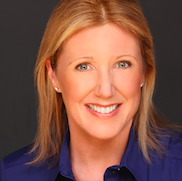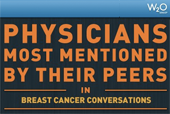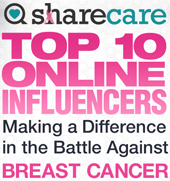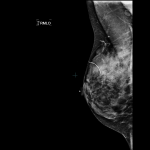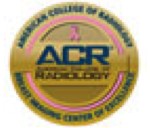Q & A: Does it matter who the radiologist is that reads my mammogram or other breast imaging studies? Why?
October 25th, 2012- It matters who reads your mammogram. If your study is read by a radiology doctor (radiologist) who practices general radiology or another radiology subspecialty and only reads a few mammograms per week, you are probably not receiving the best care. Yes, the guy is board certified and is licensed by law to read your mammogram. But I am licensed to read all radiology studies as well, even though my specialty is breast imaging. Doesn’t mean I should muddle through interpreting the next brain or shoulder MRI that comes my way.
Q & A: How do I find a “good” breast imaging center? Does it make a difference where I go?
October 24th, 2012- Yes, it matters where you choose to go for your mammogram! The most basic requirement is whether a facility is accredited under the MQSA (Mammography Quality Standards Act). The accrediting body for most states is the ACR (American College of Radiology), which has a list of requirements and tests that facilities must comply with in order for the centers to achieve accreditation. They look at things such as equipment and film quality, radiation dose, credentials of the mammography technologists and of the radiology doctors
Q & A: What if I feel a lump and the mammogram and ultrasound are negative (normal)?
October 23rd, 2012- Never ignore a lump. When you feel a lump and mammogram and ultrasound (also known as a sonogram) are negative, there is still a 2-3 % chance that the lump is cancer. Have your doctor refer you to a breast surgeon. They might want to perform a needle biopsy in the office based on what they feel, or they may advise surgical removal of the lump in the operating room. If the doctor doesn’t test the lump, and you still feel it, seek a second opinion from another surgeon. You know your body better than anyone.
Q & A : Which Tests Are Best? When Should I Start?
October 22nd, 2012If I am at high risk for breast cancer, what imaging tests should I be having each year, starting a what age?
- If you have a strong family history of breast cancer (mother or sister premenopausal), start having your mammogram 10 years younger than the age that relative was diagnosed, OR at age 40, whichever is younger; but not before age 25. For example, if your sister had breast cancer when she was 44, you should start having your mammogram at age 34. If your mother had breast cancer at 60, you would start having your annual mammogram
8 Things You Can Do TODAY to Lower Your Risk of Advanced Breast Cancer
October 29th, 2011Breast Cancer Awareness Month ends on Monday. Of course awareness is important, but knowing what specific actions you can take to protect yourself against the disease is empowering. Breast cancer can strike anyone, with or without risk factors. However, there are several things you can do NOW to lessen the likelihood of advanced breast cancer happening to you.
1. Lace up and take a walk! According to the Women’s Health Initiative study, women who walked just 30 minutes per day at least 5 days a week (exercise pace, not a leisurely stroll) decreased their breast…
Read More
